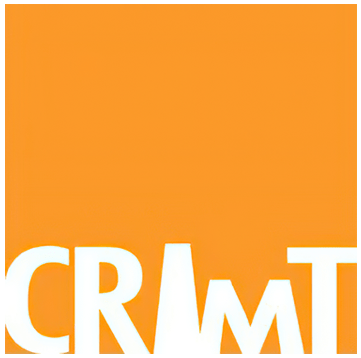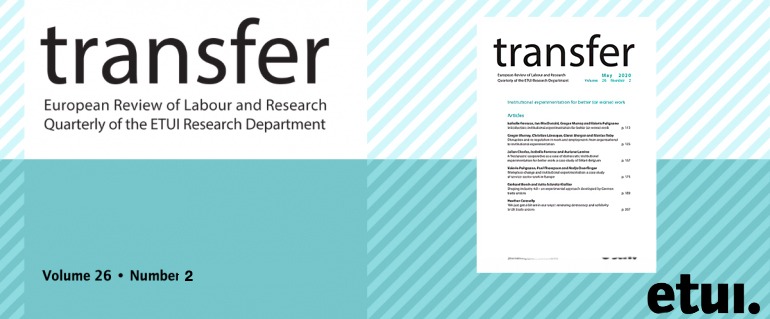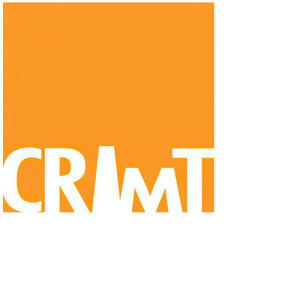Transfer: European Review of Labour and Research
Volume 26, Number 2, May 2020
Guest editors: Isabelle Ferreras (TED-CriDIS-UCLouvain), Ian MacDonald (Université de Montréal), Gregor Murray (Université de Montréal), Valeria Pulignano (KU Leuven)
Institutional experimentation for better (or worse) work
n different national, institutional and organisational contexts, and in conditions of uncertainty, worker organisations, old and new, are experimenting in response to the major fault lines of change they face. This special issue focuses on these processes of experimentation: the disruption of traditional forms of regulation of work and employment; how a variety of actors are engaged in experimentation about the governance of work and employment; how these actors are making claims on the state; how these processes can lead to better and to worse work; and how strong sets of capabilities and particular configurations of resources on the part of those engaged in experimentation can contribute to new forms of work regulation and indeed better work. Key themes include the agency and resilience of actors and their development of new collective capabilities, the importance of deliberation and democracy, the strategic and reflexive nature of their experimentation, the potential scalability of experimentation into new forms of institutionalisation integrating core values such as equality, solidarity and democracy, and new models of research aggregation requiring ongoing dialogue between actors and researchers.
Introduction: Institutional experimentation for better (or worse) work (Isabelle Ferreras, Ian MacDonald, Gregor Murray, Valeria Pulignano) • L’expérimentation institutionnelle au travail, pour le meilleur (ou pour le pire) (Isabelle Ferreras, Ian MacDonald, Gregor Murray, Valeria Pulignano) • Disruption and re-regulation in work and employment: from organisational to institutional experimentation (Gregor Murray, Christian Lévesque, Glenn Morgan, Nicolas Roby) • A freelancers’ cooperative as a case of democratic institutional experimentation for better work: a case study of SMart-Belgium (Julien Charles, Isabelle Ferreras, Auriane Lamine) • Workplace change and institutional experimentation: a case study of service-sector work in Europe (Valeria Pulignano, Paul Thompson, Nadja Doerflinger) • Shaping Industry 4.0 – an experimental approach developed by German trade unions (Gerhard Bosch, Jutta Schmitz-Kießler) • ‘We just get a bit set in our ways’: renewing democracy and solidarity in UK trade unions (Heather Connolly).




